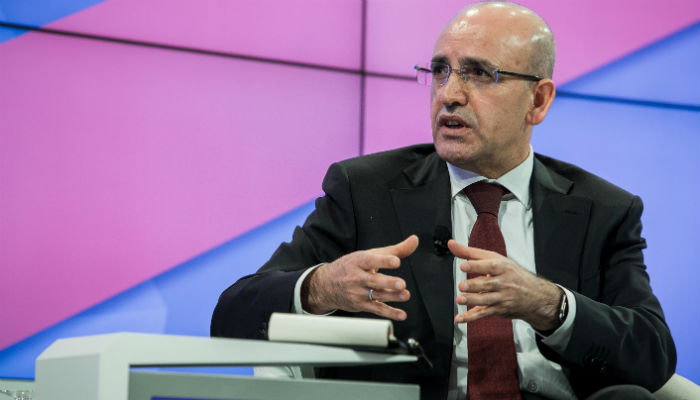Deputy Prime Minister Mehmet Şimşek said on Wednesday that Turkey has no problem with Dutch businesses or the Dutch people, in response to a question about possible sanctions to be imposed on the Netherlands amid a crisis between the two countries.
“We do not have any problems with either the Dutch people or the Dutch business world,” Şimşek said.
Şimşek’s remarks were at odds with earlier statements by the government that economic sanctions could be considered.
Due to Turkish frustration over the cancellation of political rallies in the Netherlands, Deputy Prime Minister Numan Kurtulmuş said on Tuesday that the Turkish ambassador in The Hague would not be recalled but that economic sanctions could be considered.
Similarly, Minister of Foreign Affairs Mevlüt Çavuşoğlu said all kinds of sanctions were on the table.
The Turkish government on Monday announced a series of political sanctions on the Netherlands over its refusal to allow two Turkish ministers to campaign there, including halting high-level political discussions between the two countries and closing Turkish airspace to Dutch diplomats. Other sanctions bar the Dutch ambassador entry back into Turkey and advise Parliament to withdraw from a Dutch-Turkish friendship group.
Tension between the two countries, a dramatic escalation of Turkey’s row with EU states, increased on Saturday when the Netherlands blocked two Turkish ministers from speaking at political rallies and the Turkish president, Recep Tayyip Erdoğan, twice referred to the Dutch government as “Nazis.”
Kurtulmuş said in addition to political sanctions, economic sanctions could follow. “We hope they will try to make it up. We cannot accept this barbaric cruelty,” the deputy prime minister said in reference to the violent dispersal of Turkish citizens in Rotterdam who protested the prevention of Turkish politicians’ rallies on Dutch soil.
Meanwhile, Dutch Prime Minister Mark Rutte said that sanctions imposed on the Netherlands by Turkey were “not too bad,” but added that they were inappropriate as his country had more reason to be angry.
“I continue to find it bizarre that in Turkey they’re talking about sanctions when you see that we have reasons to be very angry about what happened this weekend,” Rutte said.
Turkey’s relations with Germany, Austria and the Netherlands have been strained over these countries’ refusal to allow Turkish government officials to hold rallies there ahead of a public referendum in Turkey in April.



